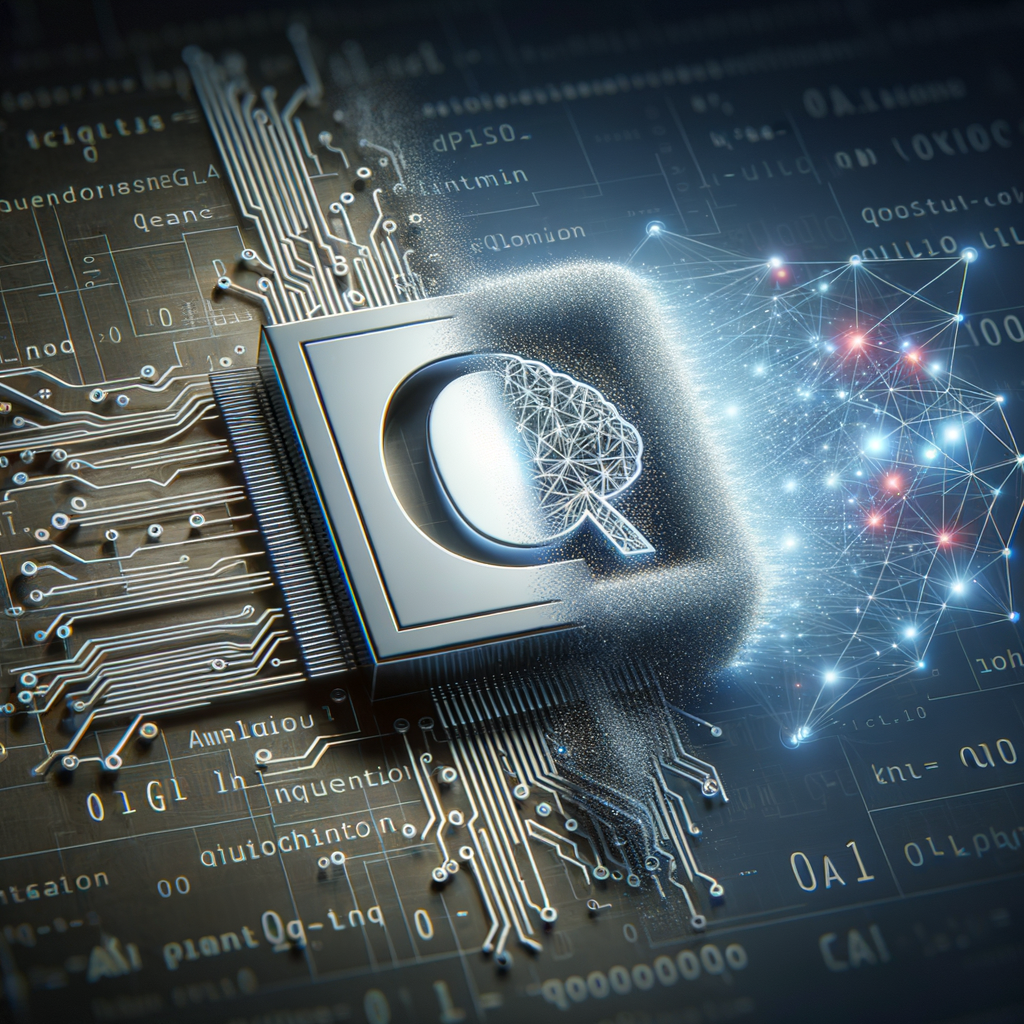
The Quantum Leap: How AI and Quantum Computing are Merging for a New Era
Explore the groundbreaking intersection of artificial intelligence and quantum computing, where new possibilities for computational power and problem-solving emerge. This blog delves into the potential of these technologies to transform industries, the challenges they face, and the exciting future ahead.
The Quantum Leap: How AI and Quantum Computing are Merging for a New Era
The landscape of technology is ever-evolving, with artificial intelligence (AI) and quantum computing standing out as two of the most transformative forces of our time. Individually, they have already begun reshaping industries and solving problems once deemed unsolvable. Together, they promise to unlock possibilities that could redefine our understanding of computation and quantum mechanics.
Understanding Quantum Computing
Quantum computing utilizes the principles of quantum mechanics to process information in fundamentally different ways from classical computers. Unlike classical bits, which exist as either 0 or 1, quantum bits, or qubits, can exist in multiple states simultaneously due to a property called superposition. This allows quantum computers to perform complex calculations at unprecedented speeds.
Furthermore, quantum entanglement, another quantum principle, enables qubits that are entangled to be interdependent, allowing for more efficient data processing. The sheer power of quantum computing can potentially solve complex problems in fields such as cryptography, material science, and drug discovery.
AI and Its Computational Needs
Artificial intelligence, particularly advanced machine learning models, relies heavily on computational power to process vast amounts of data and identify patterns. Traditional computing infrastructures often struggle with the demands of sophisticated AI algorithms. Herein lies the potential of quantum computing: its ability to vastly increase computational efficiency makes it inherently suited to support and enhance AI technologies.
The Synergy of AI and Quantum Computing
The marriage of AI and quantum computing could revolutionize the processing and analysis of data. Quantum computing can accelerate AI algorithms, allowing for faster learning and more accurate models. This synergy holds potential across numerous applications:
1. Enhanced Machine Learning
Quantum machine learning harnesses the power of quantum computing to create models that learn more efficiently and effectively. With quantum algorithms, tasks such as data classification, clustering, and pattern recognition could become exponentially faster, allowing AI systems to tackle more complex problems.
2. Optimizing Supply Chains
AI empowered by quantum computing can optimize supply chains by processing large and complex datasets to determine the most efficient routes, reduce costs, and increase efficiency—important benefits for industries reliant on logistics.
3. Financial Modeling
In finance, quantum-enhanced AI systems could revolutionize financial modeling by quickly analyzing vast datasets to identify trends and make predictions, offering more accurate risk assessments and investment strategies.
Challenges and Considerations
Integrating quantum computing with AI is not without its hurdles. The development of stable quantum computers capable of supporting AI applications is still in its infancy. Current quantum computers have limited qubits and face issues like decoherence, which affects stability during computations.
Furthermore, as with any powerful technology, ethical considerations must be addressed. The immense power of quantum computing, particularly when combined with AI, raises questions about security, privacy, and control.
The Future of Quantum AI
The coming years are likely to witness significant developments in both quantum computing and AI. As quantum technology becomes more advanced, we can expect to see it increasingly integrated into AI applications, leading to more robust, efficient, and innovative solutions across industries.
Governments and private entities are investing heavily in quantum research, recognizing its potential to create a new era in computing. When quantum computing reaches its full potential and pairs seamlessly with AI capabilities, it will likely fuel unprecedented advancements in technology, science, and human capability.
Conclusion
While the fusion of AI and quantum computing holds immense promise, it is an area that will require careful development and thoughtful application to harness its full potential. As we stand on the brink of this technological frontier, the promise of AI and quantum computing inspires a future of possibility, innovation, and transformation in ways we are only beginning to imagine.
The journey into this new computing landscape promises to be as challenging as it is rewarding, inviting curiosity and commitment from researchers, technologists, and thinkers across the globe. The leap into the unknown may well redefine our approach to technology and alter the foundations of the digital world.